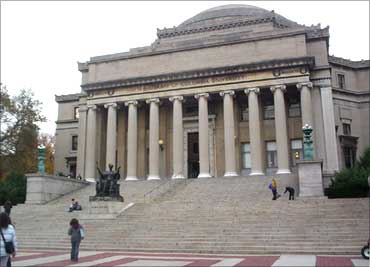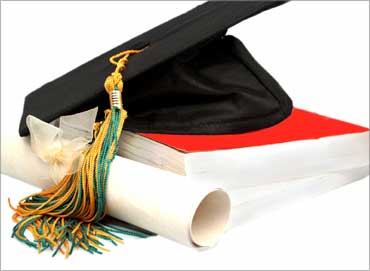
The dragon has probably edged the elephant out when it comes to university education in the US.
This in spite of the fact that the number of Indian students applying for US universities is back on track after a sharp decline in 2009.
The US, which has always been an attractive destination for Indian students, has seen only 1 per cent increase in the number of applications in 2010 for the academic year beginning September 2010, against China's 20 per cent increase.
India had witnessed a 12 per cent dip in 2009, according to the latest CGS International Graduate Admissions Survey.
"For India, this is the third consecutive year of declines in offers of admission, yet 2009 was the only year in which applications decreased," the survey said.
The 20 per cent increase in graduate applications from China, was up from a 14 per cent gain in 2009 - the fifth consecutive year of double-digit growth for Beijing.
Click on NEXT to read more...

A similar trend was seen in student applications from West Asia and Turkey, with a 20 per cent increase in 2010 following a 22 per cent gain in 2009.
US-based education analyst Rahul Choudaha said while Indian students continue to apply to the US universities, there seems to be a slow down in enrolment in leading US institutions.
This could be the result of higher number of Indian applicants relying on scholarships or assistantships as compared to Chinese students.
Choudaha said admission offers to Indian students are decreasing as compared to the increasing rate of applications made by Indian students.
Indian education consultants agree.
"Endowments to many of these universities have come down and so has the total amount available for disbursement towards scholarships or assistantships. This would certainly impact the volume of subsidies these universities are able to offer," said a Mumbai-based education consultant.
Click on NEXT to read more...

Many Indian students, who wish to study in the West, seek some subsidy either in terms of a direct scholarship, or in terms of assistantships, where the student works for the university and the university in turn subsidises his education expenses.
Indian education consultants said a decline in acceptance of applications could also be due to competition among students within the US.
Indian students contributed around Rs 12,500 crore ($2.75 billion) to the US economy in the form of tuition and living expenses and every sixth international student enrolled in the US higher education institutions is from India.
Experts said M Phil programmes that US and Canadian universities offer are considered better than those offered by any other universities in the world.
Moreover, the post-graduate courses elsewhere is a two-year course but in UK it is for one year. One-year degree programmes are not popular with many employers back in India.
Click on NEXT to read more...

The survey also suggested that a large percentage of Indian applicants compete for the same top-100 institutions, which already have a large number of Indian students and the rate of acceptance had been decreasing at these institutions.
Majority of all international graduate students, 62 per cent, are enrolled in one of three broad fields: engineering, physical and earth sciences (including mathematics and computer science), and business.
International applications this year increased in all these disciplines. In business - 11 per cent against a 7 per cent gain in 2009.
In physical and earth sciences - 10 per cent against a 2 per cent gain in 2009, and in engineering - 8 per cent against a 3 per cent gain in 2009.
"Indian students concentrate in engineering or business fields. For example, one out of every two Indian student is enrolled in engineering or computer science courses.
This is primarily driven by the expansion of engineering programs at undergraduate levels in India and also it had been relatively easy to find work in the US IT services industry.
This clearly indicates, the popularity of career-safe, professional programs among Indian students," said Choudaha.